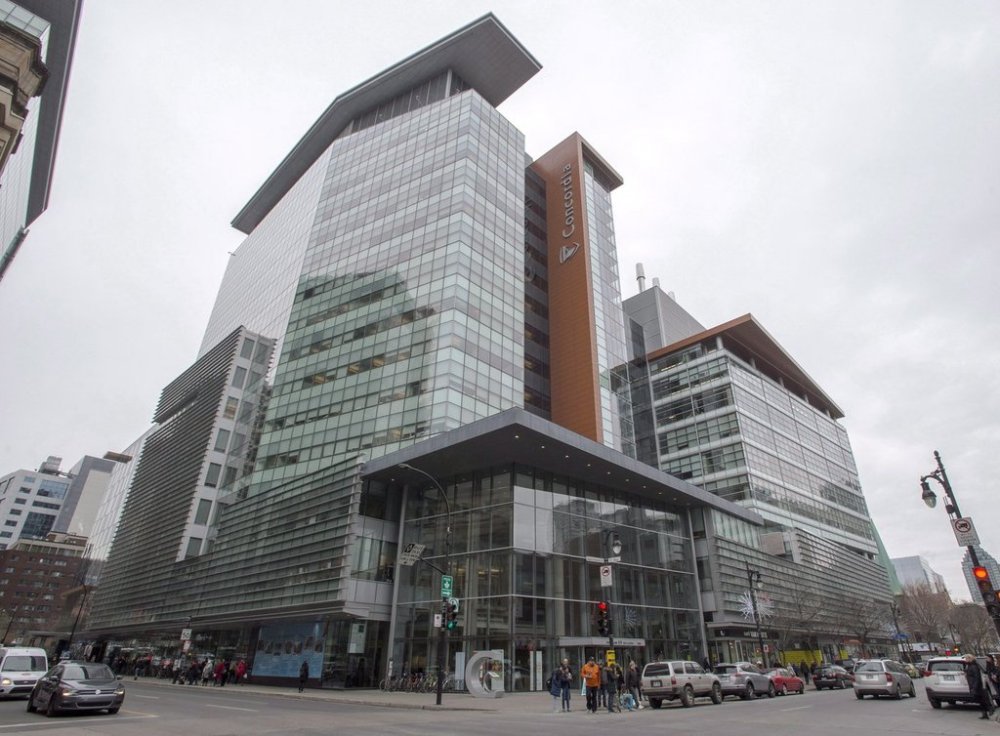Concordia defers sabbaticals, offers retirement program due to foreign student drop
Advertisement
Read this article for free:
or
Already have an account? Log in here »
To continue reading, please subscribe:
Monthly Digital Subscription
$0 for the first 4 weeks*
- Enjoy unlimited reading on winnipegfreepress.com
- Read the E-Edition, our digital replica newspaper
- Access News Break, our award-winning app
- Play interactive puzzles
*No charge for 4 weeks then price increases to the regular rate of $19.00 plus GST every four weeks. Offer available to new and qualified returning subscribers only. Cancel any time.
Monthly Digital Subscription
$4.75/week*
- Enjoy unlimited reading on winnipegfreepress.com
- Read the E-Edition, our digital replica newspaper
- Access News Break, our award-winning app
- Play interactive puzzles
*Billed as $19 plus GST every four weeks. Cancel any time.
To continue reading, please subscribe:
Add Free Press access to your Brandon Sun subscription for only an additional
$1 for the first 4 weeks*
*Your next subscription payment will increase by $1.00 and you will be charged $16.99 plus GST for four weeks. After four weeks, your payment will increase to $23.99 plus GST every four weeks.
Read unlimited articles for free today:
or
Already have an account? Log in here »
MONTREAL – Montreal’s Concordia University says it’s not renewing some teaching contracts and deferring previously approved sabbaticals because of major budget shortfalls due in part to federal and provincial immigration policies.
The university is also offering full-time faculty voluntary retirement packages, part of a suite of cost-cutting measures president Graham Carr announced earlier this week to help the school’s finances recover.
Concordia’s struggles reflect the difficulties universities across the country are facing because of restrictions on international students. Quebec has placed caps on foreign student enrolment; Canada, meanwhile, plans to cut in half the planned number of student visas for the next three years, bringing it down to 155,000 in 2026 from about 306,000 in the previous year’s plan.

In consequence, post-secondary institutions across Canada have been experiencing deep budget cuts due to reduced income from international student tuition fees, which tend to be four to five times higher than those paid by domestic students.
At Concordia, international enrolment fell by 23 per cent this year compared to 2024, according to figures shared by the university, while applications by international students dropped by 40 per cent. The school’s revenues are also taking a hit by Quebec’s decision to claw back the money it gives per foreign student — by roughly $6,000, Carr said on Tuesday.
The university says it’s “especially vulnerable” because of its reliance on enrolment and revenues from the rest-of-Canada and international students.
“If no additional action is taken, Concordia would be facing a projected $84-million deficit in 2025-26,” the university said in a statement on its website.
“This figure underscores the seriousness of the structural deficit, and the scale of intervention now required.”
A total of 63 full-time faculty members are currently employed through limited-term contracts, which the university says it won’t renew next school year. A spokesperson confirmed most of those faculty members will lose their job, as their contracts end in June 2026. As well, the university says it is deferring sabbatical applications for one year.
Concordia has already announced several cost-cutting measures this year, including a hiring freeze and the closing of the Montreal Institute for Genocide and Human Rights Studies.
Stephen Yeager, a long-standing English professor, said four colleagues will be out of a job next year, including some that have been with the department for over 10 years. “If it goes forward, it’ll be a huge blow to our students,” said Yeager, also a union representative for the faculty association that represents those on limited-term contracts.
Yeager says it’s still not certain what will happen to the classes that were taught by the faculty members, whom he described as “cherished, valuable colleagues.”
“On top of teaching, these are mentors” he said. “These are supervisors. These are participants in community events and grant-funded research.”
The Canadian Press spoke with three other professors, including two that will lose their job. They all declined to have their names published due to fears of professional reprisals. They said they worry courses could be cut, or that the classes will be taught by less qualified teachers.
For many, the news came as a major shock.
“It was one of those moments in my life that I’m never going to forget, seeing my chair coming to my office with shame and apology, saying ‘You won’t have a job next year here,'” said an assistant professor who has taught at the university for the past five years. “I felt like a school kid getting expelled.”
Carr declined an interview request for this story. But in an interview in late September, Carr said like many other universities across the country, Concordia has been struggling financially. Not just because of the caps on international students, he said, but also because governments have essentially sent the message that international students aren’t welcome here.
“It’s created a havoc for universities in Quebec and Canada,” he said.
Anglophone universities in Quebec are particularly suffering, he added, because of a major jump in tuition that the provincial government imposed on out-of-province students. In April, a Quebec Superior Court judge struck down that tuition hike, but gave the Quebec government nine months to revise its tuition plan, meaning the higher rates have remained in effect.
Carr said for the last three years Concordia has had a deficit-target agreement with the Quebec government, adding the administration has had to make cuts to hit those targets.
“We’ve had to put a pause on hiring, and that’s a challenging thing to do, because we are a university that was used to growing, and now we’re having to operate in a different manner,” he said.
This report by The Canadian Press was first published Nov. 7, 2025.

